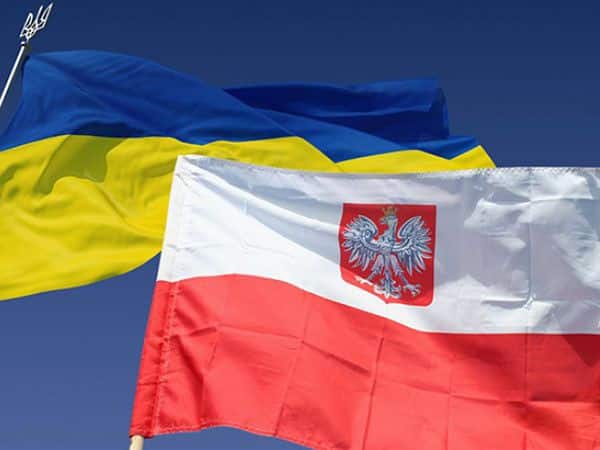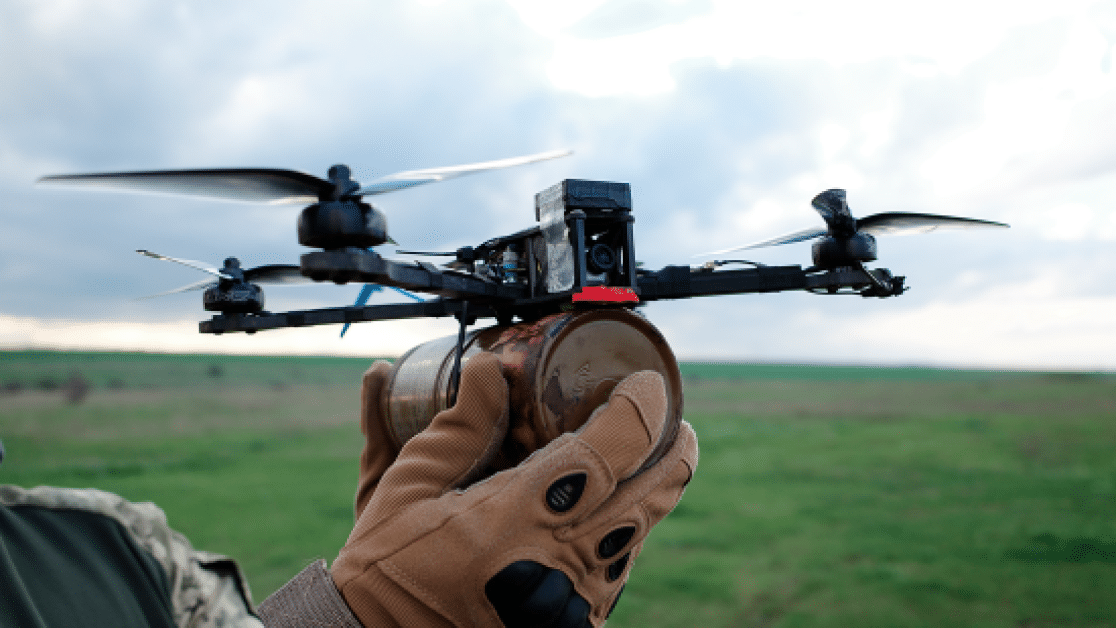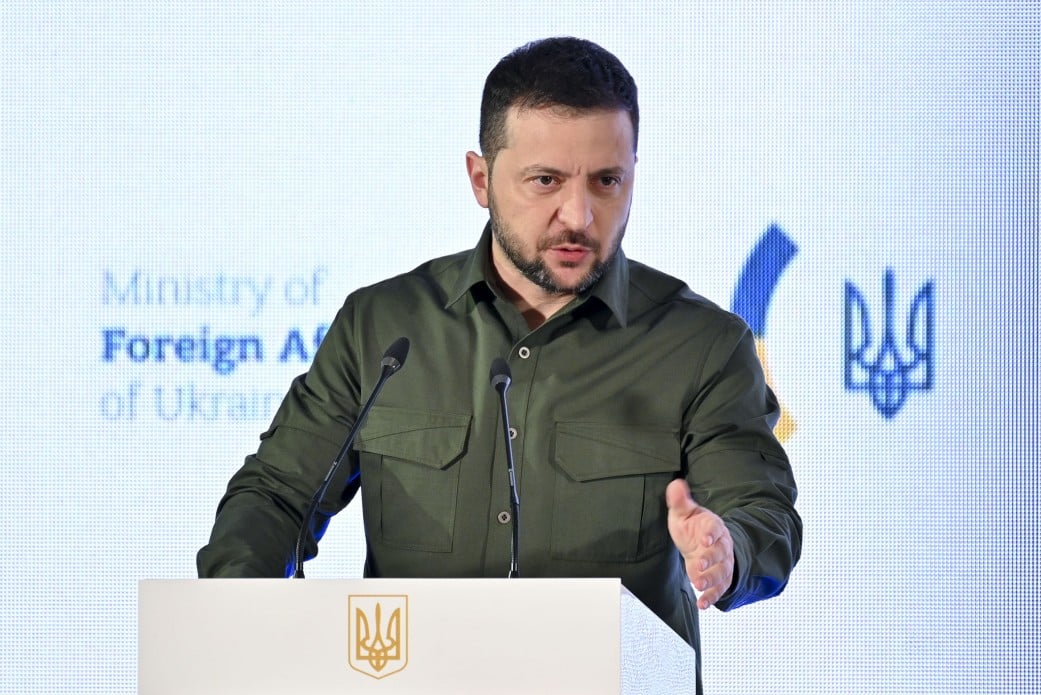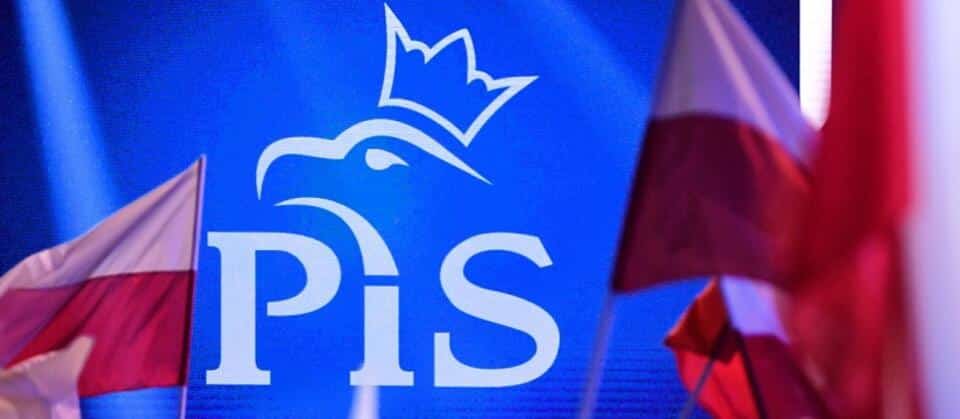Table of Contents
- Who supports Russia in France?
- Politics: Macron is a key ally
- The Left Party
- The Right Party
- The far-right
- Deputies or lobbyists?
- Business: who still works in Russia?
- Products for “good Russians”
- The public sector and the media: widespread Ukrainophilia (with nuances, a term which means the love of or identification with Ukraine and Ukrainians)
Who supports Russia in France?
From the first days of Russia’s full-scale invasion of Ukraine, there was an almost unequivocal consensus in French politics to condemn the aggression. Any justification of Russia’s actions by party leaders would be considered political suicide. However, the level of support which France should provide to Ukraine varies greatly among different political forces. Most opposition parties would be quite satisfied with an “expression of concern,” that is why President Macron’s policy of gradually increasing the volume and level of assistance to Ukraine has been criticized by opponents.
The accusation that can be heard from both the right and the left is “France must not become an accomplice to war” or “France must not empty its reserves.” In short, many in Paris are afraid of angering Russia. It should not be forgotten that President Macron himself has been talking for months about the need for a “dialogue with Moscow.” However, even the French leader has finally realized that Ukraine can still win and has stopped calling Putin.
We decided to analyze in detail who in France is a supporter of the policy of countering Russia, who hopes that in time it will be possible to resume a dialogue with Moscow, and who covertly or openly supports the aggressor.
See also: How “Russian peace” is being built in Turkey and how it threatens Ukraine’s partner
Politics: Macron is a key ally
The Left Party
Former Putin supporter Jean-Luc Mélenchon, far-left, who has retired from politics but still has a strong influence on French public opinion, called the Russian president’s strategy “worthless” in an interview with a state TV channel in early January: “He did not want NATO on his borders, but achieved the opposite. The whole world has united around the United States. This is a worthless strategy.” At the beginning of the great war, the same Mélenchon warned against sending weapons to Ukraine in order not to “contribute to escalation.”
The party “France Unbowed,” whose founder and leader was Mélenchon for a long time, merged with the Socialists and the Greens in the last parliamentary elections to form the new left alliance, and this eclectic and situational political force still has no common line on Ukraine. From the beginning, the Socialists and Greens have been in favor of sending weapons to Ukraine. In her inaugural speech in December, the new leader of the Greens, Marine Tondelier, said that “the fate of all of us is being decided in Ukraine, so we can not, should not, and will not leave the Ukrainian people alone.”
“The Unbowed and the communist wing of the new left union have always had a more pro-Russian position: Manuel Bompard, who replaced Mélenchon, spoke in March about the need to abandon “non-constructive sanctions” and asked not to lump “Putin and his people” together, as the latter may well be “against the war.” The result of such polarized statements and internal dissonance in the new left-wing alliance is that they now… do not make speeches on Ukraine at all! According to the principle, “if you can’t find a compromise, keep quiet”. In this situation, it is unfortunate that the openly pro-Ukrainian Greens do not take the initiative, but this is due to their relatively weak position within the left-wing alliance – 22 deputies compared to 74 “unbowed” deputies.
The Right Party
Against the backdrop of uncertainty on the left, criticism of the right is much louder. At the party congress on December 11, Eric Ciotti became the new leader of the Republicans, who, four months before the full-scale invasion, called for the “restoration of Franco-Russian friendship” and the end of the “absurd Cold War.” After February 24, the politician’s speeches became less provocative, but their essence did not change. He condemned the aggression and recognized Ukraine’s right to fight for its security. That’s all. Solidarity at the minimum tariff.
In September, Ciotti stated the need to “resume dialogue” with Russia and expressed concern that France could inadvertently become a “direct participant in the conflict” if it does not “contribute to de-escalation.” To summarize, according to Ciotti, Ukraine should fight for its sovereignty, but it should preferably do so on its own and not ask for anything from France.
The far-right
The situation on the far-right is even worse. If in the first six months after the start of the full-scale invasion Marine Le Pen condemned Russian aggression in unison with French politicians and spoke of the need to support Ukraine, then as soon as two election campaigns, the presidential and parliamentary, had passed, the far-right leader and longtime Putin supporter returned to her usual rhetoric. From the expected “sanctions against Russia should be lifted because they are ineffective” to the recent “the longer we supply Ukraine with weapons, the longer the war will last”, Marine Le Pen’s statements make it clear that her political force will fight to force Ukraine to negotiate on unfavorable terms.
It is becoming increasingly difficult to ignore the National Assembly: from a marginal force in the French parliament, the far-right party has become the second-largest opposition group by a number of seats, which means that the French electorate has a demand for policies proposed by the far-right, and this is not the best news for Ukraine. Emmanuel Macron accused his main opponent of capitulation rhetoric and assured that France would support Ukraine as long as it was needed. Realistically speaking, until 2027, because that is when his second mandate will expire and he will not be able to run for president again. And Le Pen will be ready to run for the presidency for the third time.
Deputies or lobbyists?
An interesting detail: the French National Assembly has 154 friendship groups with parliaments from around the world. Among them is the Franco-Russian friendship group, which includes 30 deputies (12 of them are members of the National Assembly), and its existence did not cease either in 2014 or after February 24, 2022.
“Perhaps we should think about renaming ourselves the international studies group,” suggested its head, Caroline Janvier (from the presidential party Renaissance), adding, “we could look for ways to counter Russian propaganda.”
The proposal is naive, to say the least. Friendship groups traditionally play the role of the first stop for lobbyists, and here is a striking example: among its members is Jean-Claude Boucher, a deputy of the Republicans, who in 2019 traveled to Crimea as part of a delegation of 12 French politicians (most of them were MEPs or former members of the National Assembly) to celebrate the “fifth anniversary of the reunification of Crimea with Russia.” And how can this be a “fight against propaganda”?
In general, the French political sphere has a clear understanding that the war will end one day and that it will be necessary to work with Russia again. That is why no political force is calling for a complete severance of relations with Moscow. Rather, everyone has taken a wait-and-see attitude and is trying not to take any drastic steps, hoping that by the next election, in 2027, everything will “work itself out” and the war will no longer be the main topic in the election campaign.
The most radical position in this context, however strange it may seem, is that of President Emmanuel Macron, who in his New Year’s address stated that France would remain with Ukraine until victory and promised Kyiv more weapons (recently, he hinted at a possible shipment of Leclerc heavy battle tanks). The center-left president, known for his “simultaneous” (en même temps, French) policy, of trying to please everyone at once (which is evident in his sometimes contradictory statements), remains a good ally for Ukraine.
Despite the difficult political context for Ukraine in France, in early December 2022, the National Assembly nevertheless supported the historic resolution, condemning Russia’s “criminal aggression” and promising “total support for Kyiv.” 303 deputies voted in favor, 1 voted against (the only opponent of the resolution was Jérôme Legarve of the “Unbowed”) and 95 abstained. The vote took place in the lower house of parliament in the presence of Ukraine’s Ambassador to France Vadym Omelchenko.
See also: Will Turkey be able to take advantage of the weakening of Russia?
Business: who still works in Russia?
TotalEnergies and kerosene for Russian airplanes
Historically, French business has had much closer ties with Russia than with Ukraine. The reason for this is far from ideological, but very pragmatic: the size of the market for sales. Before the war, France was the sixth largest supplier of goods to Russia, the second most important investor, and the largest foreign employer with 160,000 local employees. After February 24, this situation changed, but not dramatically.
The most prominent French presence in Russia is undoubtedly the oil and gas giant TotalEnergies, which until August 2022 produced gas condensate together with Novatek at the Termokarstovoye field in Siberia. The non-governmental organization Global Witness found out that two days before the war began, gas condensate was sent to a plant in Omsk, where it is used to produce kerosene, which later fuel Russian military aircraft at the Malshevo and Morozovsk air bases. Over the five months of the war, 42,000 tons of kerosene reached the airbases, which is 3,400 full tanks of Su-34 aircraft.
The French oil and gas giant has been accused of involvement in Russian war crimes. Accusations that the company’s French management categorically denied. Instead (what a strange coincidence!), in July, TotalEnergies reported record profits of $5.7 billion for the second trimester of 2022, double the amount for the same period in 2021. One of the reasons for this success was the rise in energy prices, the company explained.
It was only in August 2022, the sixth month of the war, that TotalEnergies was forced to sell its stake in Ternaftogaz, the operator of the scandalous field, to Novatek under great media pressure. However, even after this blow to its reputation, TotalEnergies did not completely leave Russia. The French company continues to produce liquefied natural gas on the Yamal Peninsula, explaining that it is urgently needed to supply Europe. Supplies that are indeed growing steadily: in parallel with the sanctions on Russian oil and natural gas, Europe has never bought as much liquefied gas from Russia as it does now.
See also: War for the Arctic or energy sabotage: why Russian spies have become more active in Norway
Products for “good Russians”
While in the first months of the war in Ukraine, the decisions of foreign companies to stay or leave Russia were highly publicized (such as the exit from the market of Renault, Société générale, Publicis, and Sodexo), many others continue to operate on the principle of business as usual, trying not to attract attention. This is not always possible. For example, the Russian branch of the French manufacturer of frozen and canned vegetables Bonduelle allegedly congratulated Russian soldiers on the New Year by sending humanitarian aid to the front. “Dear soldier, come back with victory!” The post with photos of the gifts appeared on the Russian telegram channel.
After a flurry of criticism, the company issued an official response in which it assured that it had not sent any humanitarian aid to the soldiers and that it continues to operate in Russia solely to “provide the population with access to essential foodstuffs.” Is it a fake or not, this does not negate the fact that the manufacturer has no plans to leave the aggressor country.
See also: Anatomy of rashizm: how the undefeated totalitarian legacy became a countdown to Putin’s Russia
Companies regularly use the argument of “providing essential services” to the population to justify their presence in Russia. The same thing happened to Leroy Merlin, a chain of construction and repair products. Despite numerous petitions, protests, and boycotts, the company remained in Russia, employing 45,000 people. “We have no reason to punish our Russian employees who are not responsible for this war. We have been building our business together for 18 years,” the company management explained. And what a business! This is the second largest market for the company after France in terms of volume.
See also: Ukraine’s victory in the Asian era: what experience should be adopted
Another well-known French brand, Danone, used an identical “excuse” when it sold almost all of its assets to a local Russian manufacturer, but still retained the production of infant formula, explaining that it was necessary to meet the “basic needs of the population.” And then there are companies that like to sit on two chairs. For example, L’Oréal is not going to close its plant in Kaluga, while at the same time, the company has donated 5 million euros to the Red Cross and UNICEF to help Ukraine, and in the first months of the war sent about 250,000 hygiene products to Ukrainian refugees.
There is a widespread narrative about “good Russians” in French business, as in politics, who are perhaps “against the war,” so why should they suffer from the lack of canned peas, infant formula, or even lose their jobs? It is also part of the idea that the war will end and Russia will not disappear, so why should they leave now if they will have to return later? In addition, when it comes to reputational risks, retailers suffer the least: the Bonduelle boycott was so weak that no French media outlets reported on it after three days. Realistically speaking, Total, with a network of 4,000 gas stations across France, is not taking much of a risk: will an average Frenchman think of kerosene for Russian airplanes while rushing to work?
The Elysee Palace’s influence on the international activities of private French companies is limited. In practice, this means that Emmanuel Macron cannot prohibit the management of the private holding TotalEnergies from developing fields in Russia, but he can call on French companies to help Ukraine, which he did at the December conference in solidarity with Ukraine in Paris, where he managed to raise more than a billion euros in aid.
The scales are, of course, incomparable: when boilermakers from the Loire Valley send several hundred stoves to Ukraine or leaders in the production of prefabricated bridges from Cantal provide the Ukrainian army with several dozen bridges for free, these are wonderful volunteer initiatives that are greatly appreciated in Ukraine. However, if, at the same time, France and other EU countries are paying billions of euros to Russia for liquefied natural gas, which is not yet subject to sanctions and whose exports from Yamal LNG to the EU have increased by 13% over the past year, then stoves will not make it warmer.
See also: Iranian kamikaze drones Arash-2 – what is known about them, their capabilities and characteristics
The public sector and the media: widespread Ukrainophilia (with nuances, a term which means the love of or identification with Ukraine and Ukrainians)
Culture
If it’s not about gasoline or food, the French are turning into real Ukrainophiles: the Ukrainian Vesna [spring – ed.] festival, tours by Ukrainian artists, and performances and shows are drawing full houses. In November alone, Okean Elzy, BoomBox, and Zhadan and the Dogs (Ukrainian bands) visited Paris. The Ukrainian Embassy plays a leading role in organizing festivals and cultural mediation in France in general. In January, Ukraine once again made a name for itself as the week of Ukrainian drama in Paris became the personification of cultural synergy: 12 French actors performed six Ukrainian plays translated specifically for the event.
However, all this admiration for Ukrainian cultural life does not prevent the French from giving a minute-long ovation to Russian singer Anna Netrebko, who performed in Paris in May (and against whom the National Security Council of Ukraine imposed sanctions a few weeks ago). In this context, the rhetoric about “good Russians” turns into the classic “what does culture have to do with it”.
See also: The biggest geopolitical scam of the 20th century: why Russia’s influence in the UN is baseless
The voice of this philosophy is the French actress Macha Méril, whose Ukrainian-Russian noble family fled the Bolshevik Revolution to France in 1917. Every year she organizes the Russian film festival in Paris, and 2022 was no exception: “Censorship is not the answer” and “one should not confuse Putin with the Russian people,” classic excuses in this case. Méril limited herself to correcting the festival’s slogan to “Festival of Russian cinema… together with Ukraine” and withdrawing the invitation to the Russian ambassador to the opening.
Media
Speaking about the Russian embassy in France, its spokesperson, Alexander Makogonov, regularly appears on several private news channels and talks about the “legitimacy of the referendums” and the “success of the special operation.” The French hosts ask tough questions and provoke, but they know in advance what they will hear in response. It seems that everyone is playing a different game: French channels are playing rating races, and Russian propagandists are playing Russian propaganda.
Nevertheless, it is worth paying tribute: Ukrainian Ambassador to France Vadym Omelchenko is often invited by leading French TV channels to appear on their programs, and the atmosphere is quite different: journalists are increasingly asking the question “What exactly does Ukraine expect from France?”
See also: Putin raised the stakes: how Japan helps Ukraine
However, the peculiarity of the French media field is its complete obsession with Putin. It does not resemble a fan club, but rather a Stockholm syndrome: the most popular French news channels (BFMTV and LCI) broadcast all important speeches of the Russian president live with simultaneous translation and spend hours trying to understand, together with geopolitical experts and former military officers, what exactly he meant and what to expect from the Kremlin in the future. At the same time, they cannot be accused of a pro-Russian stance: the LCI news channel is jokingly called the “Ukrainian channel” in France because for the eleventh month in a row, without exaggeration, 90% of its airtime has been devoted to discussing the scale of Russian aggression and its inadmissibility.
As for the print press, the left-wing newspaper Libération is probably at the top of the list of the most pro-Ukrainian publications. This is evident not only in the number and quality of articles about Ukraine but also in such details as the spelling of cities: it is the only French newspaper of such a high level that spells Kyiv instead of Kiev. This does not mean that other print media, such as Le Monde or Le Figaro, have a pro-Russian stance. Not at all. The Kremlin’s long arms have only reached out to RT France, a channel banned in the EU but active on the Internet via VPN until last week, and Sputnik (the French version of which is hiding under an African domain name).
See also: Russians need to denazify themselves first, – Chief Rabbi of Ukraine Moshe Azman
Public organizations
For eleven months now, more or less large-scale protests organized by the Union of Ukrainians in France have been taking place every Wednesday and sometimes on Saturdays in Paris to prevent the French authorities from forgetting about the war. It is interesting that not only Ukrainians but also many French people take part in the rallies. More and more French!
The organizations Stand with Ukraine and DOC4Ukraine are excellent examples of local people’s involvement in public activities. The numerous initiatives include collecting generators for Ukraine through the DesLumièresPourLHiver campaign (“light for the winter”, French), while DOC4Ukraine specializes in collecting and delivering medicines, as well as organizing medical delegations to Ukraine to help local doctors. Often, these organizations are staffed by people who had nothing to do with Ukraine even a year ago.
These horizontal structures are the best indication that the French do not need clumsy speeches from politicians or sharp headlines to remember that there is a war going on 2,000 kilometers from their borders. The number of Ukrainian internally displaced persons accepted (the figure has exceeded 100,000) and local solidarity initiatives are the best evidence of this.
Originally posted by Maria Oleksa Yeshchenko, for LB.ua, translated and edited by the UaPosition – Ukrainian news and analytics website




